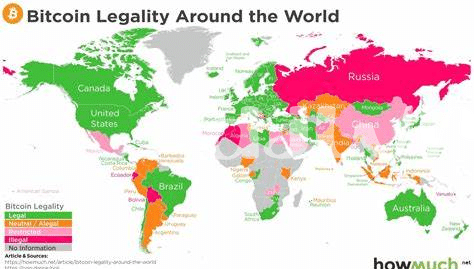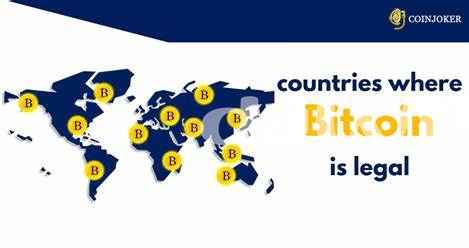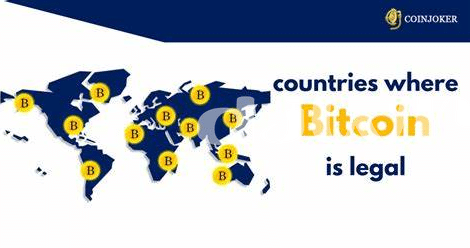Current Legal Status 📜

Bitcoin’s legal status in Nicaragua is currently a topic of uncertainty among regulatory authorities. The absence of specific laws addressing cryptocurrencies has left Bitcoin in a gray area in terms of legality. While the government has not banned Bitcoin, its lack of official recognition raises questions about its use in financial transactions and its implications for businesses and individuals. This ambiguity has resulted in a cautious approach from both investors and consumers in the country, highlighting the need for clear regulatory guidelines to govern the use of Bitcoin.
Impact on Financial Transactions 💸
Bitcoin adoption in Nicaragua has reshaped the landscape of financial transactions, introducing a decentralized approach that alters traditional banking systems. This transformation is notable in its swift and secure cross-border transactions, revolutionizing the way individuals engage in global commerce. Additionally, the transparency of blockchain technology underpinning Bitcoin enhances trust in financial interactions, reducing the need for intermediary institutions. By empowering individuals with greater control over their assets, Bitcoin fosters financial inclusion, particularly in regions where traditional banking services are limited. Despite initial skepticism, the increasing acceptance of Bitcoin in Nicaragua signifies a shift towards embracing the digital currency as a legitimate form of value exchange.
Regulatory Challenges 🚫

The emergence of Bitcoin in Nicaragua has raised significant regulatory challenges. The lack of clear guidelines and oversight from government authorities has created uncertainty around the legal framework within which Bitcoin transactions operate. This uncertainty not only raises concerns about consumer protection but also poses risks related to money laundering and financial stability. Without proper regulations in place, there is a potential for misuse and abuse of Bitcoin, which could threaten the country’s financial ecosystem and hinder its integration into the global economy. As Nicaragua navigates through these regulatory challenges, it is crucial for policymakers to strike a balance between fostering innovation in the digital currency space and safeguarding against potential risks and vulnerabilities.
Potential for Economic Growth 💰

Bitcoin adoption in Nicaragua holds immense potential for economic growth. As digital currencies gain traction globally, integrating Bitcoin into the financial ecosystem could lead to increased investment, job creation, and overall prosperity for the country. By leveraging the decentralized nature of Bitcoin, Nicaragua can attract new businesses, promote innovation, and enhance financial inclusion for its citizens. As more individuals and businesses embrace this technology, it opens doors for economic expansion and opportunities that were previously inaccessible. The shift towards digital currencies not only modernizes financial systems but also positions Nicaragua favorably in the global economy. To learn more about the legal implications of Bitcoin adoption in different countries, including Nepal, visit is bitcoin recognized as legal tender in Nepal?.
Citizen Adoption and Awareness 👫
– Citizen Adoption and Awareness 👫
Expanding on the notion of citizen adoption and awareness, it is crucial to consider the educational efforts required to enhance understanding and utilization of Bitcoin in Nicaragua. Implementing targeted campaigns, workshops, and community outreach programs can bridge the gap between unfamiliarity and active participation. By empowering individuals with the knowledge and resources necessary to engage with this digital currency, the potential benefits of Bitcoin adoption can be realized at a grassroots level. Heightened awareness can lead to increased trust, usage, and integration of Bitcoin into everyday transactions, ultimately shaping a more inclusive and progressive financial landscape for Nicaraguan citizens.
Future Outlook and Recommendations 🔮

In moving forward, it is crucial for Nicaragua to proactively address the upcoming challenges relating to Bitcoin adoption. A comprehensive regulatory framework needs to be established to provide clarity and protection for both users and businesses entering the crypto space. Educating the populace about the risks and benefits of using cryptocurrencies is essential for fostering responsible adoption. Additionally, working towards international collaboration in regulating digital currencies can help create a more stable environment for innovation and investment. By taking proactive measures, Nicaragua can position itself to harness the potential economic benefits of Bitcoin while mitigating associated risks.
is bitcoin recognized as legal tender in mozambique?
